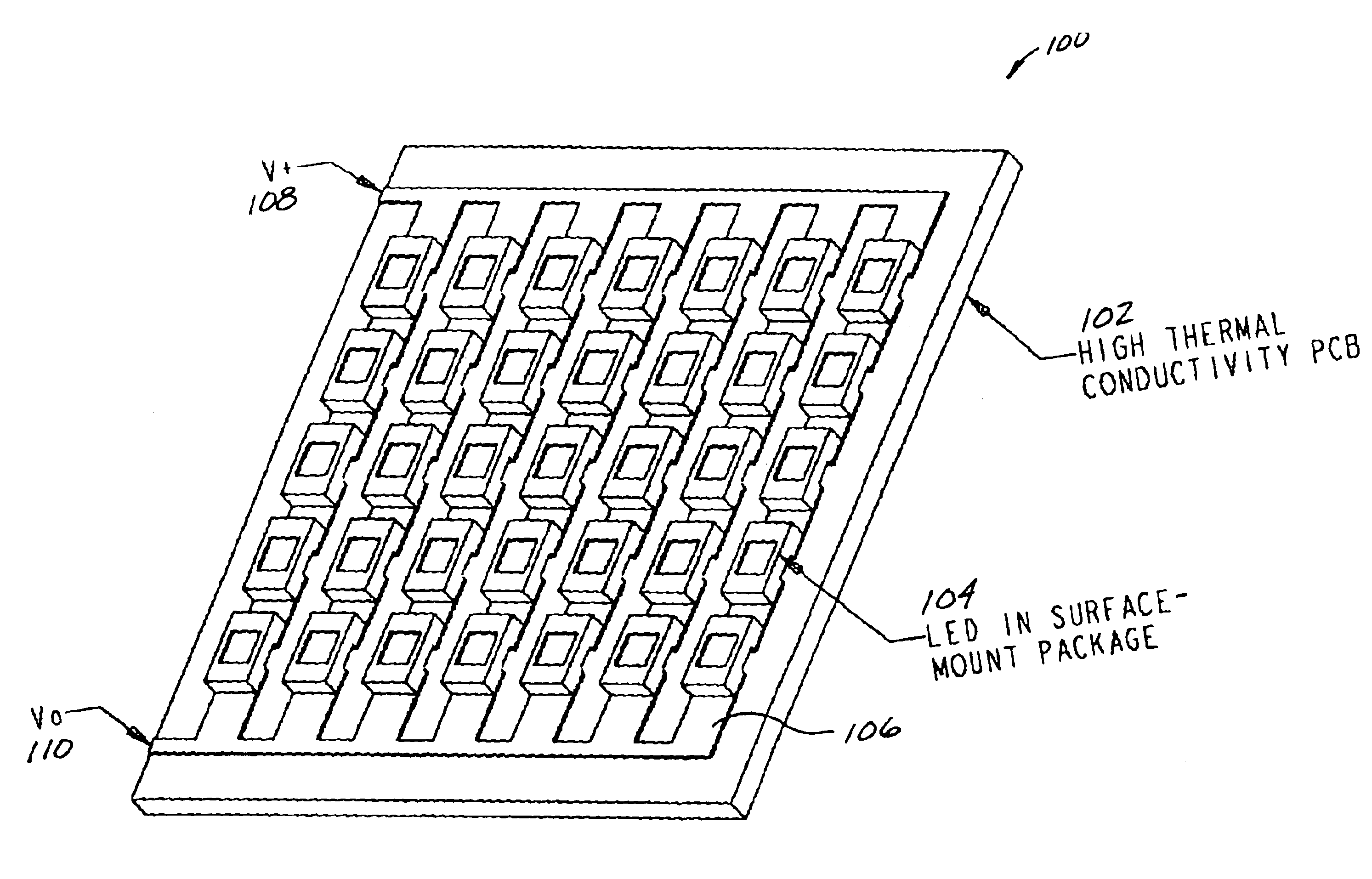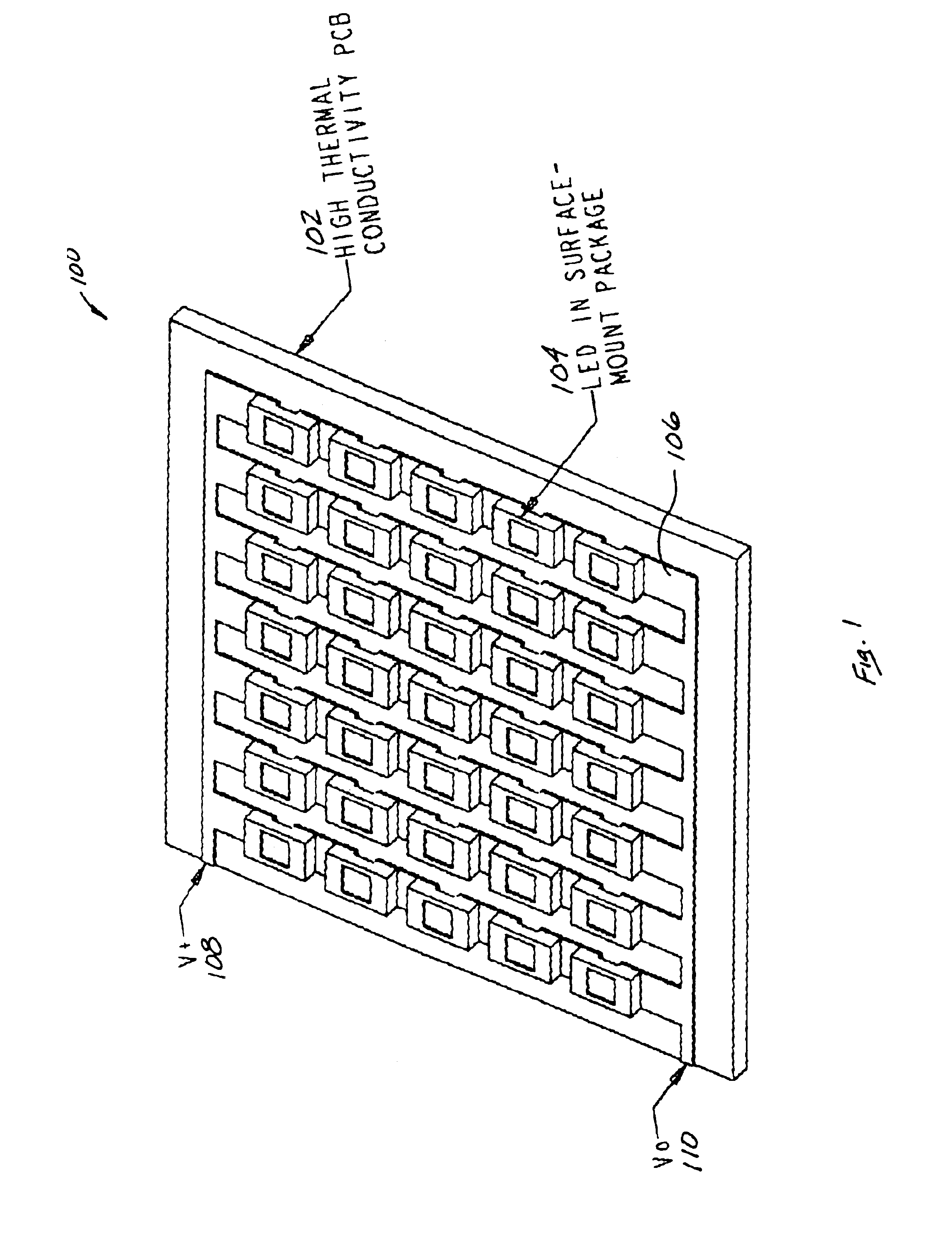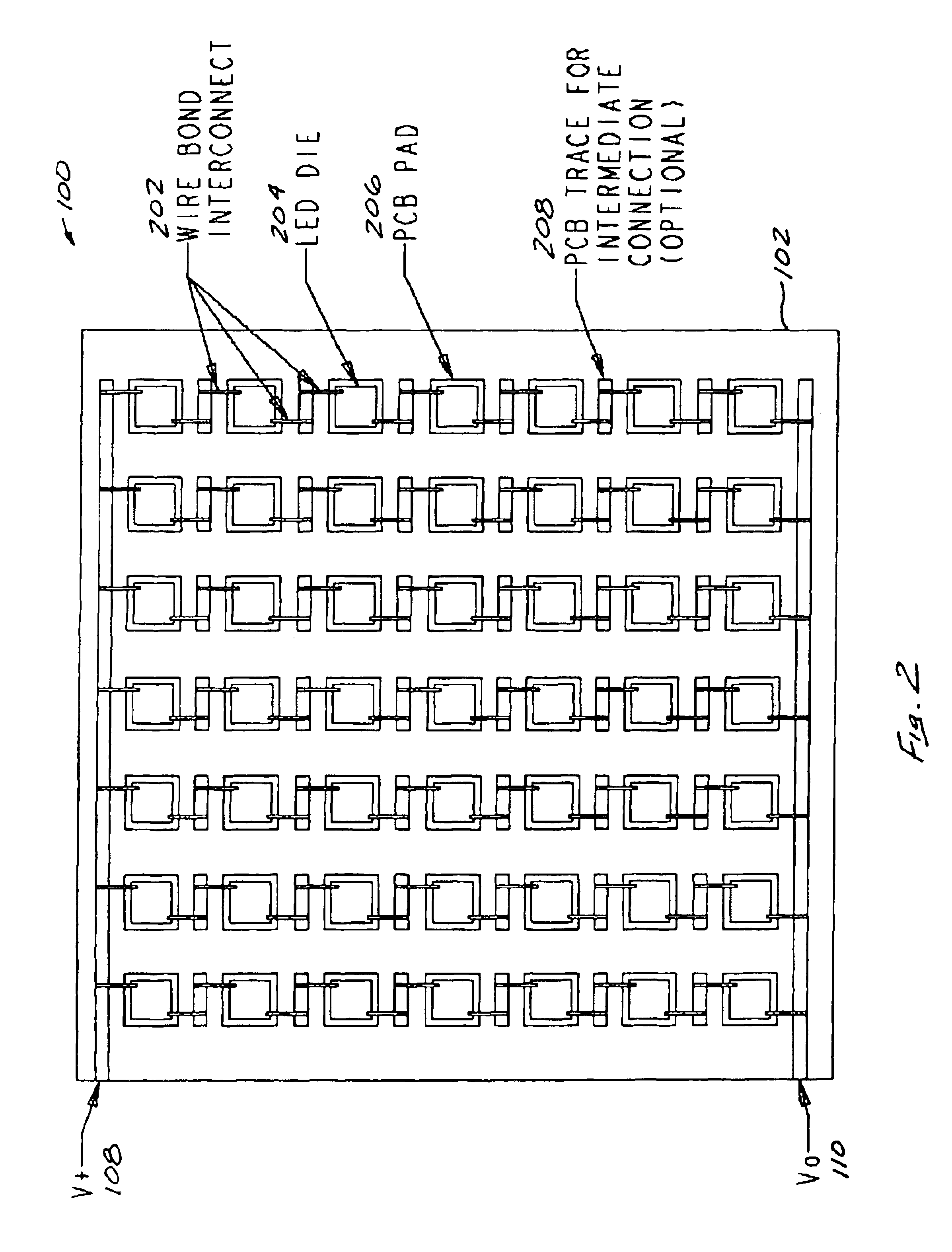Methods and apparatus for an LED light engine
a technology of led light and engine, applied in the field of led light engines, can solve the problems of system that can replace standard lighting products, limitations inherent in currently known light engines, and known systems that have failed to capitalize on led's desirable characteristics
- Summary
- Abstract
- Description
- Claims
- Application Information
AI Technical Summary
Benefits of technology
Problems solved by technology
Method used
Image
Examples
Embodiment Construction
[0028]The following description is of exemplary embodiments of the invention only, and is not intended to limit the scope, applicability or configuration of the invention in any way. Rather, the following description is intended to provide a convenient illustration for implementing various embodiments of the invention. As will become apparent, various changes may be made in the function and arrangement of the elements described in these embodiments without departing from the scope of the invention.
[0029]Overview
[0030]In general, an LED light engine in accordance with the present invention comprising a high thermal conductivity substrate (e.g., a metal-clad PCB), a plurality of light-emitting-diode (LED) semiconductor devices mechanically connected to the substrate, an outer dike fixed to the substrate and surrounding at least a portion of (preferably all of) the LED devices, and a substantially transparent polymeric encapsulant (e.g., optical-grade silicone) disposed on the pluralit...
PUM
 Login to View More
Login to View More Abstract
Description
Claims
Application Information
 Login to View More
Login to View More - R&D
- Intellectual Property
- Life Sciences
- Materials
- Tech Scout
- Unparalleled Data Quality
- Higher Quality Content
- 60% Fewer Hallucinations
Browse by: Latest US Patents, China's latest patents, Technical Efficacy Thesaurus, Application Domain, Technology Topic, Popular Technical Reports.
© 2025 PatSnap. All rights reserved.Legal|Privacy policy|Modern Slavery Act Transparency Statement|Sitemap|About US| Contact US: help@patsnap.com



